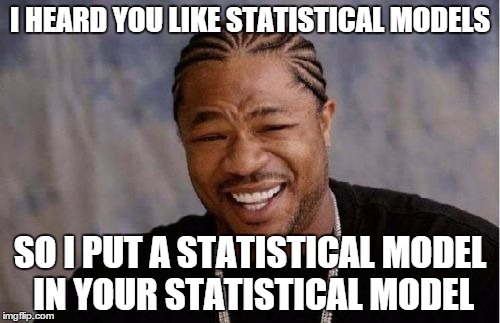Pregnant women, don't stop eating fish!
Tuna, shark, king mackerel, tilefish, swordfish. If you’ve ever been pregnant, or known someone who has been pregnant, this list of seemingly random aquatic vertebrates is all too familiar to you. It’s the “avoid while pregnant” list of seafoods, and it’s just one of the confusing set of messages surrounding pregnancy and fish consumption.
(For the video version of this post, click here).
Because aren’t we supposed to be eating more fish? Fish are the main dietary source for omega-3 fatty acids, which can cross the placenta, and may promote healthy brain development. Of course, some of these fish contain mercury which, as Jeremy Piven taught us all, may be detrimental to cognitive development.
These contradictory facts led the US FDA, in 2014, to recommend that pregnant women consume more fish, but not more than 3 times a week. You have to love the government sometimes.
A study appearing in JAMA pediatrics is making some waves with its claim that high levels of fish consumption, more than 3 times per week during pregnancy, is associated with more rapid neonatal growth as well as higher BMIs throughout a child’s young life. Now, contrary to what your mother-in-law has been telling you, more rapid infant growth is not necessarily a good thing, as rapid infant growth is associated with overweight and obesity in childhood and adulthood.
But fish as the culprit here? That strikes me as a bit odd. Indeed, prior studies of antenatal fish consumption have shown beneficial or null effects on childhood weight gain. What is going on here?
The authors combined data from 15 pregnancy cohort studies across Europe and the US, leading to a final dataset including over 25,000 individuals. This is the studies greatest strength, but also its Achilles heel, as we’ll see in a moment.
But first the basic results. Fish consumption was based on a food frequency questionnaire, a survey instrument that I, and others, have a lot of concerns about. Women who reported eating less than or equal to 3 servings of fish a week had no increased risk of rapid infant growth or overweight kids. But among those eating more than 3 servings, there was around a 22% increased risk of rapid growth from birth to 2 and overweight at age 6.
These effects were pretty small, and, more importantly, ephemeral. The authors looked not only at the percentage of obese and overweight children, but the raw differences in weight. At 6 years, though the percent of overweight and obese kids was statistically higher, there was no significant weight difference between children of mothers who ate a lot of fish and those who didn’t. When statistics are weird like this, it usually suggests that the effect isn’t very robust.
In fact, this line from the stats section caught my eye, take a look:
That means the authors used numbers predicted by a statistical model to get the weight of the children rather than the actual weight of the children. I asked the study’s lead author, Dr. Leda Chatzi, about this unusual approach and she wrote “Not all cohorts had available data on child measurement at the specific time points of interest… in an effort to increase sample size and…power in our analyses, we…estimated predicted values of weight and height”.
So we have a statistical model that contains as a covariate, another statistical model. This compounds error into the final estimate, and in a study like this, where the effect size is razor thin, that can easily bias you into the realm of significance.
And, at this point it probably goes without saying, but studies looking at diet are always confounded. Always. While the authors adjusted for some things like maternal age, education, smoking, BMI and birth weight, there was no adjustment for things like socio-economic status, sunlight exposure, diabetes, race, or other dietary intake.
What have we learned? Certainly not, as the authors suggest, that
That they wrote this in a study with no measurement of said pollutants is what we call a reach.
Look, you probably don’t want to be eating fish with high levels of mercury when you are pregnant. But if my patients were choosing between a nice bit of salmon and a cheeseburger, well, this study doesn’t exactly tip the scales.




